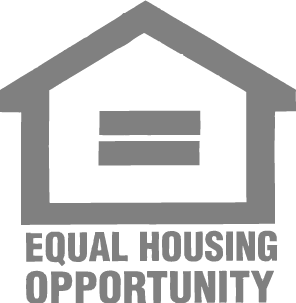As a real estate investor, you’re always looking for ways to differentiate your properties and maximize their value. One effective way to achieve this is by obtaining green certifications for your rental properties. These certifications signify that a property meets specific environmental and sustainability standards, offering numerous benefits for both property owners and tenants. In this blog post, we’ll explore the key advantages of green certifications for rental properties and why they’re worth considering for your real estate portfolio.
1. Increased Property Value and Rental Rates
Green certifications such as LEED (Leadership in Energy and Environmental Design) and ENERGY STAR are often associated with higher property values. Studies have shown that properties with green certifications can command higher rental rates compared to non-certified properties. This is because tenants are increasingly willing to pay a premium for spaces that offer lower utility costs, healthier living conditions, and a reduced environmental footprint.
2. Energy Efficiency and Cost Savings
One of the primary benefits of green-certified properties is their energy efficiency. These properties are designed to use less energy for heating, cooling, and lighting, which translates into lower utility bills. For property owners, this means reduced operational costs and higher net operating income (NOI). For tenants, the savings on energy bills make green-certified rentals more attractive, leading to higher occupancy rates and reduced turnover.
3. Enhanced Tenant Attraction and Retention
Today’s renters, especially Millennials and Gen Z, prioritize sustainability and environmental responsibility. Green certifications signal to potential tenants that a property is aligned with these values. Features like energy-efficient appliances, water-saving fixtures, and superior indoor air quality appeal to environmentally conscious tenants. As a result, green-certified properties often experience higher tenant satisfaction and longer lease durations, reducing vacancy periods and turnover costs.
4. Healthier Living Environment
Green certifications typically require the use of non-toxic building materials and advanced ventilation systems, contributing to improved indoor air quality. This can lead to healthier living conditions for tenants, reducing the risk of respiratory issues and allergies. Healthier environments are particularly appealing to families with children and individuals with health sensitivities, enhancing the property’s marketability.
5. Positive Environmental Impact
Green certifications reflect a commitment to sustainability and environmental stewardship. By reducing energy consumption, water use, and waste, green-certified properties contribute to a lower carbon footprint and a healthier planet. Property owners who prioritize green building practices can take pride in their role in promoting sustainability and can use this as a marketing tool to attract like-minded tenants.
6. Compliance with Regulations and Incentives
In many regions, local governments are introducing stricter building codes and regulations aimed at improving energy efficiency and reducing environmental impact. Green certifications can help ensure that your properties comply with these regulations, avoiding potential fines and penalties. Additionally, many jurisdictions offer incentives such as tax breaks, grants, and rebates for green-certified properties, further enhancing their financial viability.
7. Competitive Advantage in the Market
As the demand for sustainable living options grows, green certifications can provide a significant competitive advantage in the rental market. Properties with green certifications stand out as modern, responsible, and forward-thinking, appealing to a wide range of tenants. This can help you attract and retain high-quality tenants who are looking for more than just a place to live—they want a home that aligns with their values.
8. Improved Brand Reputation
Green certifications are not only beneficial for individual properties but also for the overall brand image of property management companies and real estate investors. Demonstrating a commitment to sustainability can enhance your reputation and credibility in the industry. This can lead to increased trust from tenants, investors, and the broader community, potentially opening up new business opportunities.
Final Thoughts
By embracing green building practices and obtaining certifications, you not only enhance the value and appeal of your properties but also contribute to a more sustainable future for all. So, consider going green and reaping the rewards of a certified eco-friendly rental property.
Looking specifically for a green rental property? We’d love to help–reach out to us today!


